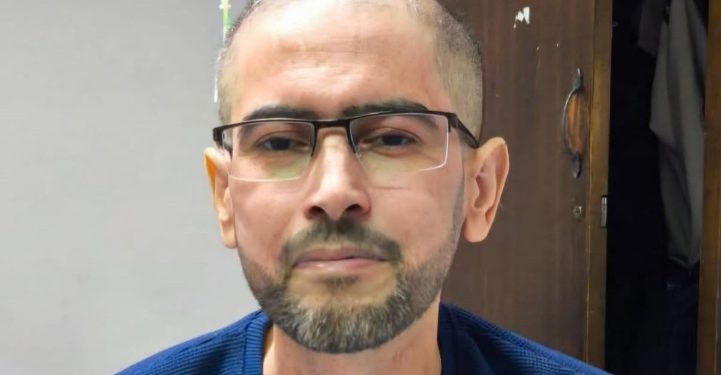Former Palestinian prisoner and deportee Motasem Taleb Dawood Raddad, 43, from Seida, north of Tulkarm, has died in an Egyptian hospital following a long struggle with cancer, which he developed during his years of imprisonment in Israeli occupation prisons as a result of deliberate medical neglect and ill-treatment.
Raddad endured 20 years of suffering inside detention centres. He was injured by shrapnel during his arrest in 2006, and his health continuously deteriorated due to the absence of proper medical care. He suffered from severe intestinal inflammation, chronic internal bleeding, and multiple illnesses including high blood pressure, heart irregularities, breathing difficulties, and chronic pain in his joints and back.
The policy of medical neglect by the Israeli prison authorities towards Raddad extended beyond the failure to provide treatment. It also included forced transfers between prisons and clinics under harsh and degrading conditions, which further worsened his health. Instead of being transferred to specialised medical centres, he remained confined to the Ramla Prison Clinic, which is notorious for its poor healthcare and that has resulted in his slow death.
Despite experiencing severe symptoms, he was not released on medical grounds until a ceasefire deal in Gaza in February this year, under which he was deported directly to Egypt for treatment. However, by that time, his condition had become critical and beyond the reach of medical intervention, leading to his death.
Around a year ago, one of the released prisoners conveyed a message from Raddad, in which he said: “I feel like I am the next to die in the occupation’s prisons… my intestines are bleeding, my heart is irregular, my blood pressure is high, I am suffocating with no one to help… we are dying every day.” These words reflect the harsh reality faced by ill prisoners in Israeli detention, where they are not only denied their freedom, but left to die in isolated cells lacking the basic necessities of life.
Raddad’s suffering is not a single an incident, but rather as a stark example of a systematic policy pursued by the occupation authorities, one that targets ill prisoners with deliberate neglect, leaving them to suffer and die in violation of all humanitarian norms and international conventions that guarantee a detainee’s right to treatment and healthcare.



























